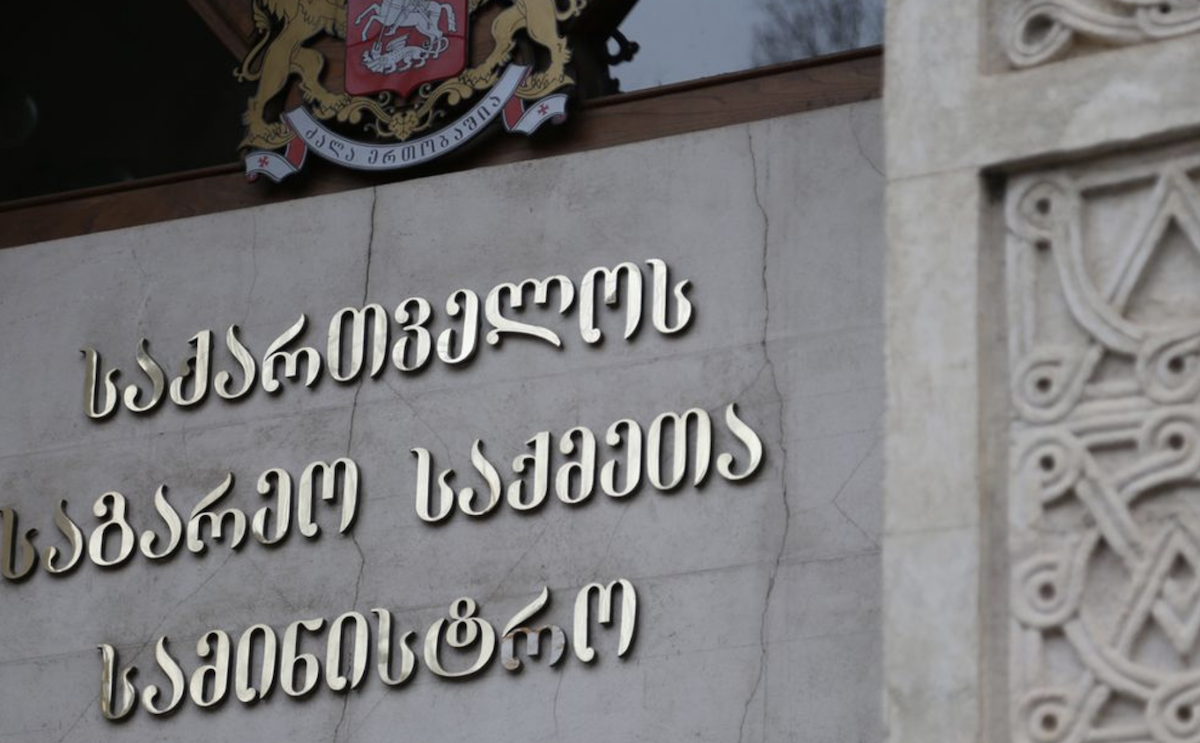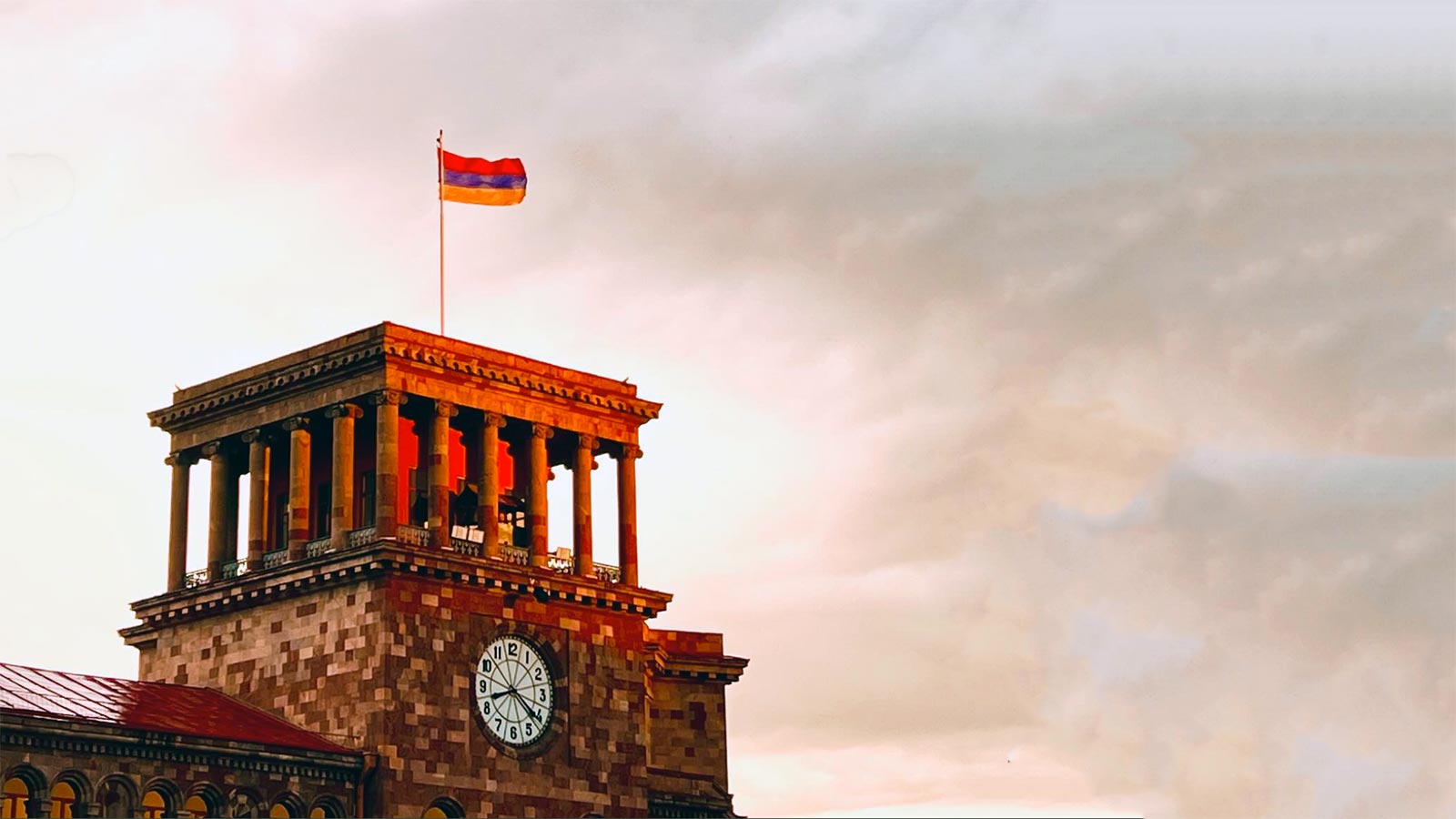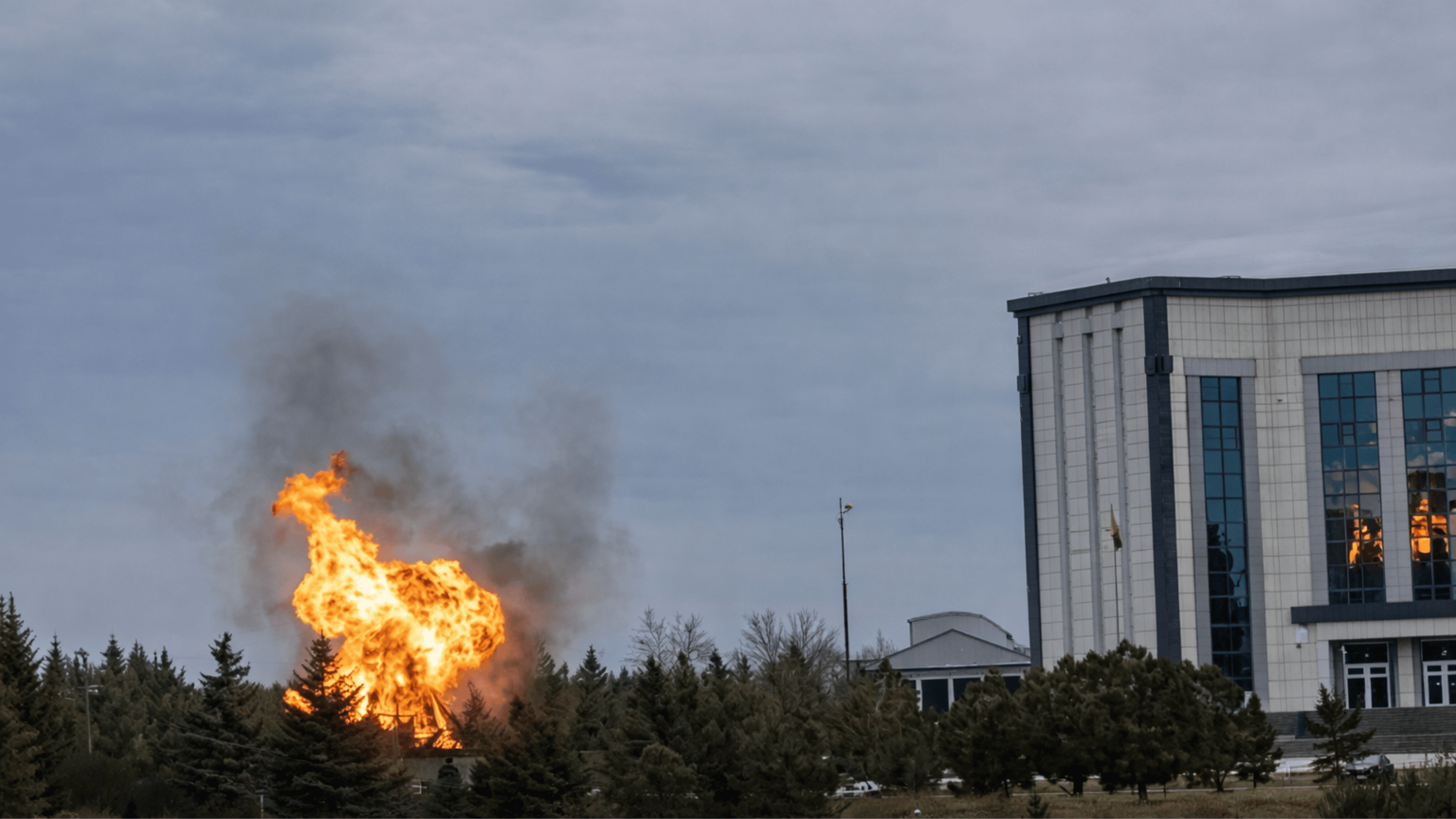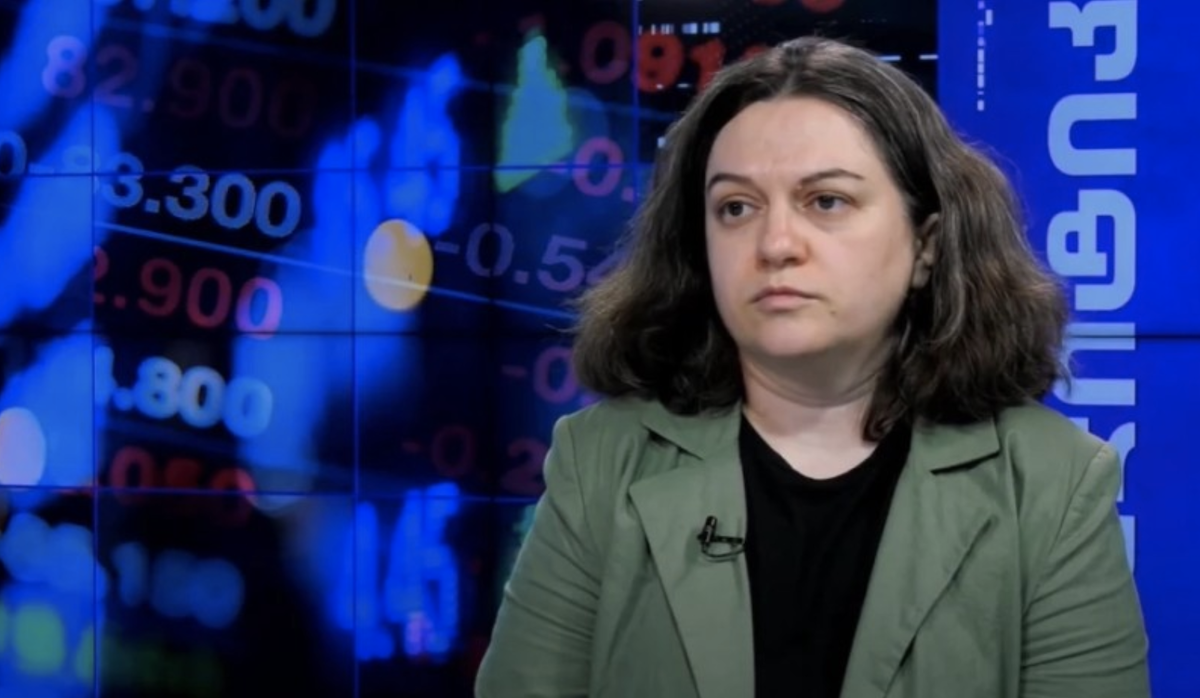"Let's call crime a tradition." Why Georgia has never been able to solve the problem of early marriage
Child marriage in Georgia
On October 6, 2023, 14-year-old Aitaj Shakhmarova was trying to escape from her “husband’s” house when he shot her several times with a shotgun.
The girl died on the spot.
This took place in the village of Lambalo in the Kakheti region. The family of Aitaj’s “husband” lived in this village.
The investigation found out that Aitaj had lived in a forced marriage with 28-year-old Asim Aslanov for two months.
She herself was from the village of Useinkendi in Dmanisi district. This year Aitaj was supposed to go to the ninth grade, but after the start of the new school year, she never showed up at school. Everyone knew that she had gotten “married”.
The marriage was known both in her village and in her “husband’s” village, where more than 600 people live, but no one uttered a word against it.

“And what could we do? This is a family matter,” men gathered outside a local store in Aitaj’s home neighborhood told JAMnews.
So far, five people have been charged in the case. All of them have been arrested.
Among them is Aitaj’s own mother, who, according to the investigation, facilitated her daughter’s marriage. Also the native uncle of the girl. According to the investigation, Aitaj was 13 years old when last fall her mother and uncle planned to marry her off to a wealthy man much older than her.
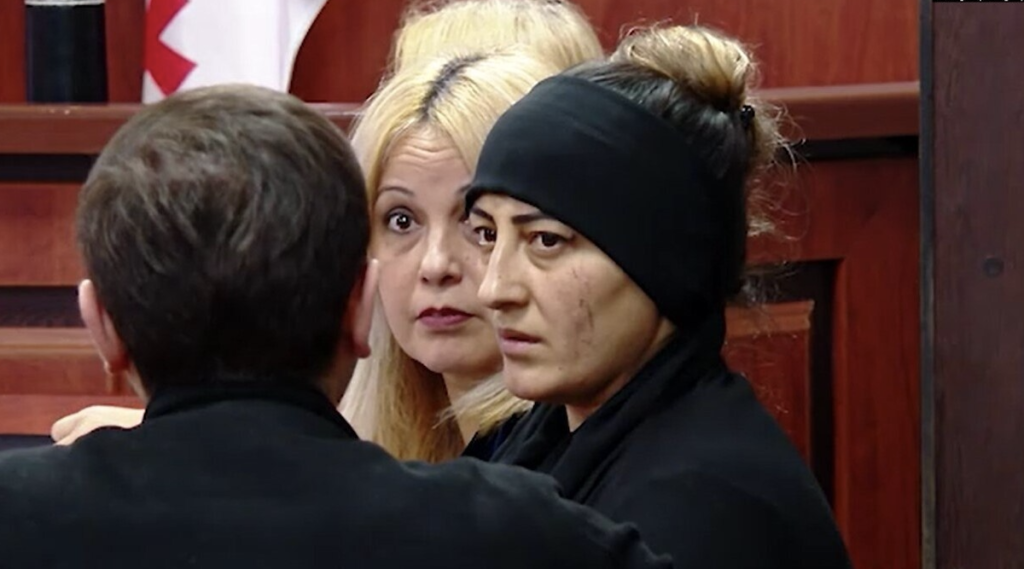
Two members of Asim Aslanov’s family – his uncle and cousin – were also detained. They are charged with forced marriage and failure to report a crime.
Child marriage in Georgia
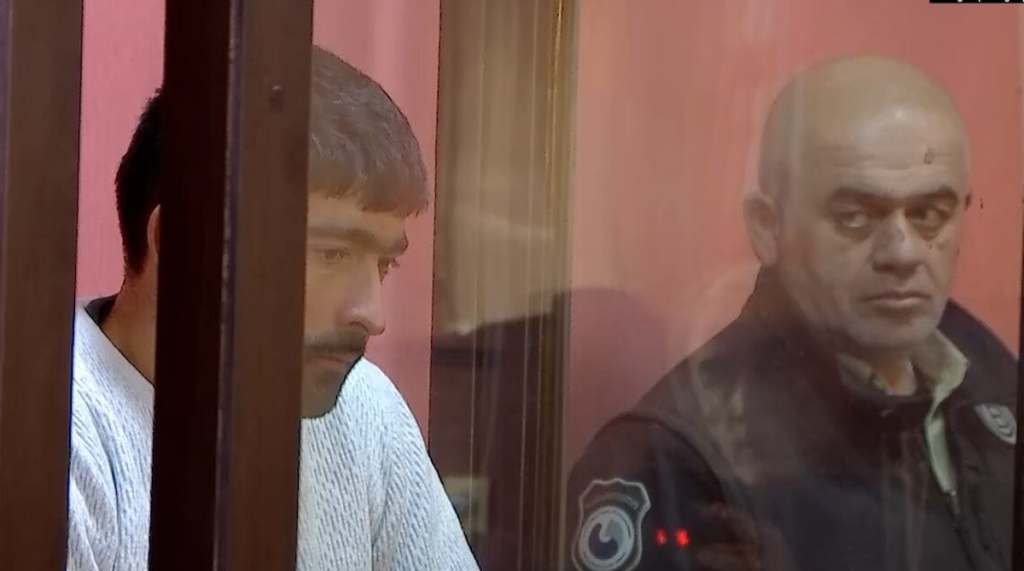
Had it not been for the horrific murder, Aitaj would have been just one of dozens of girls who have been married off from school in Georgia.
The law exists, but the problem remains
Although legislation has been tightened in recent years, early marriage remains an acute and unresolved problem in Georgia.
A married schoolgirl burdened with multiple family problems is not an uncommon phenomenon, especially in the Kvemo Kartli region, where many Azeris live.
According to the UNICEF definition, child marriage is any formal or informal relationship with a person under the age of 18.
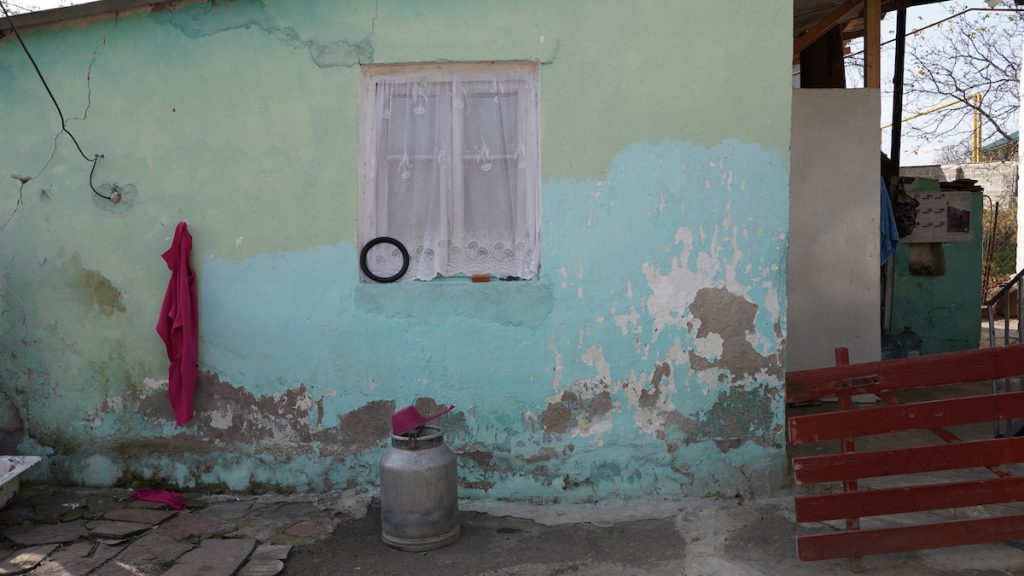
Last year’s Public Defender’s report said that in 2022 alone, the Interior Ministry began investigating 171 cases of possible underage marriage.
That same year, 815 pregnant minors were registered in Georgia. 434 of them gave birth.
According to Article 1108 of the Civil Code of Georgia, marriage is allowed from the age of 18.
Until 2017 there was an exception according to which girls under 16 could marry with express consent, and permission from the court. Today, however, any exception is illegal.
According to Article 140 of the Criminal Code of Georgia, sexual penetration of a person under the age of 16 is considered a serious crime and is punishable by imprisonment from seven to nine years. The intention to start a family is not considered a valid reason.
Child marriage in Georgia
Forced marriage is also criminal by law. Here the punishment is defined by Article 150 of the Criminal Code. “Forced marriage (including unregistered marriage) is punishable by community service for a term of 200 to 400 hours or imprisonment for up to two years. The same act committed knowingly against a minor is punishable by imprisonment for a term of two to four years.”
“We have laws, but it is problematic to enforce and apply the law in practice. Failure to report crimes should be dealt with particularly strictly. The country should have a strict policy in this direction,” Sofo Rusetski says, Acting Head of the Gender Division of the Office of the Public Defender of Georgia.
According to the Public Defender’s report, the rights of both genders are violated in the case of child marriages, but with girls the difficulties are much greater – almost always marriage completely excludes their participation in public life.
Girls are isolated from family and friends, in most cases forced to drop out of school, are economically worse off if they become pregnant, and are often victims of domestic violence.
Nino Tsilosani, MP from the ruling Georgian Dream party and Chairperson of the Permanent Parliamentary Council on Gender Equality, agrees that the problem of early marriages is very acute in the country:
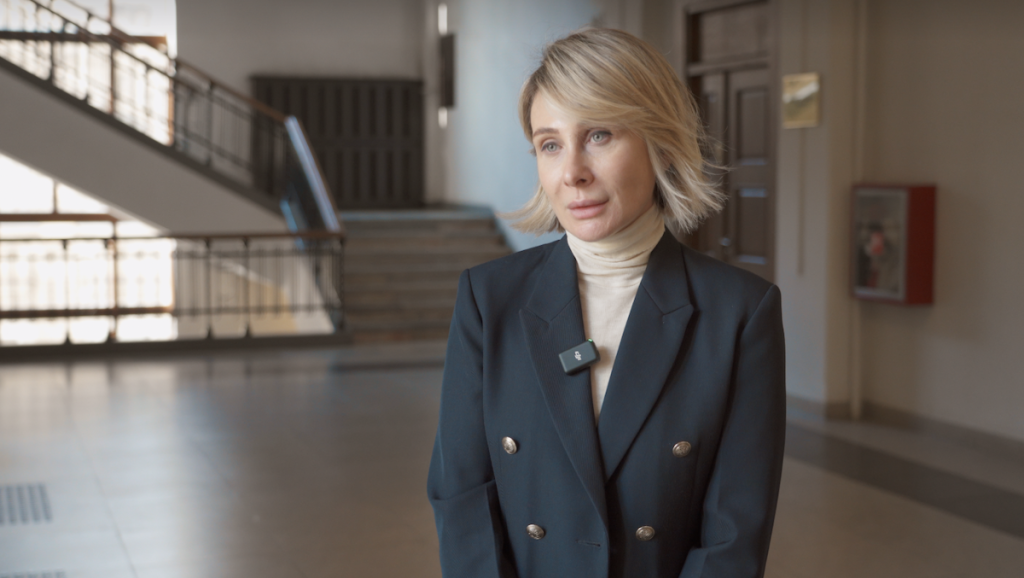
“Early marriages, child marriages remain one of the pressing problems and forms of violence against women and girls in our age.”
Child marriage in Georgia
However, she says putting all the responsibility on the state and law enforcement agencies alone would be unfair:
“When child marriages take place, in many cases, unfortunately, the child, their relatives, friends, and members of the community themselves conceal, fail to provide timely information to law enforcement officials,” Tsilosani says, “at the same time to the school, teachers, and parents. Social workers play a crucial role in identifying and documenting the child from the very beginning.”
Zaydeh’s engagement
23-year-old Zaydeh (name changed at her request) had a good childhood. Her mother and father spoiled the girl and brought her up with love. Zaydeh grew up in a mixed family — her mother is Georgian and her father Azerbaijani.
She was 14 when strangers came to their home. This family of ethnic Azeris lived in a neighboring village and had a son a few years older than Zaydeh.
That day they came for an engagement party — to ask for Zeide’s hand in marriage.
The father did not want the girl to marry early, but the grandmother made the decision; she was the head of the family.
The families agreed that Zaydeh would finish school, get a certificate, become an adult and only then would they get married.
“There was no coercion. I voluntarily agreed to the engagement. I was told he was a good boy from a good family. I was brought gifts, given attention, praised. I liked all this, I was very young,” Zaydeh recalls.

Not even a week after the engagement, however, the new family set new conditions. They demanded that Zaydeh be transferred to a school of their acquaintances – officially registered, with no obligation to attend classes.
“Suddenly it became clear that they didn’t want me to go to school. But I resisted and stayed in my school after all. Everyone just knew I was an engaged, ‘busy’ girl, so it wasn’t the same.”
Two years later, when Zaydeh was 16 and going into eleventh grade, the groom’s family decided it was time to get married.
“They were breaking the pact, but my parents could no longer resist. It was considered that I already belonged to a new family.”
The conflict with the law was solved by the groom’s family as many do in this region:
“A relative of theirs worked in the police, his word had power, and everything was resolved without any problems — I was given in marriage. They only paid a fine,” Zaydeh says.
She says that both in the school, in the village and in the police, everyone around her knew she was a minor.
Child marriage in Georgia
The engagement – it all starts with her
The public defender considers one of the main problems to be the “institution” of engagement, which is very popular among the ethnic Azerbaijani population.
According to this tradition, the groom’s family comes to the house of the girl’s family with a ring and other gifts to ask for her hand in marriage. There are cases when the future bride is 12 or even 10 years old at the time of engagement.
After the engagement, the girl formally continues to live in the house of her parents, but in reality she is subject to the will of the future husband’s family. There are often cases when the future husband forbids her to go to school, socialize with her peers, etc.
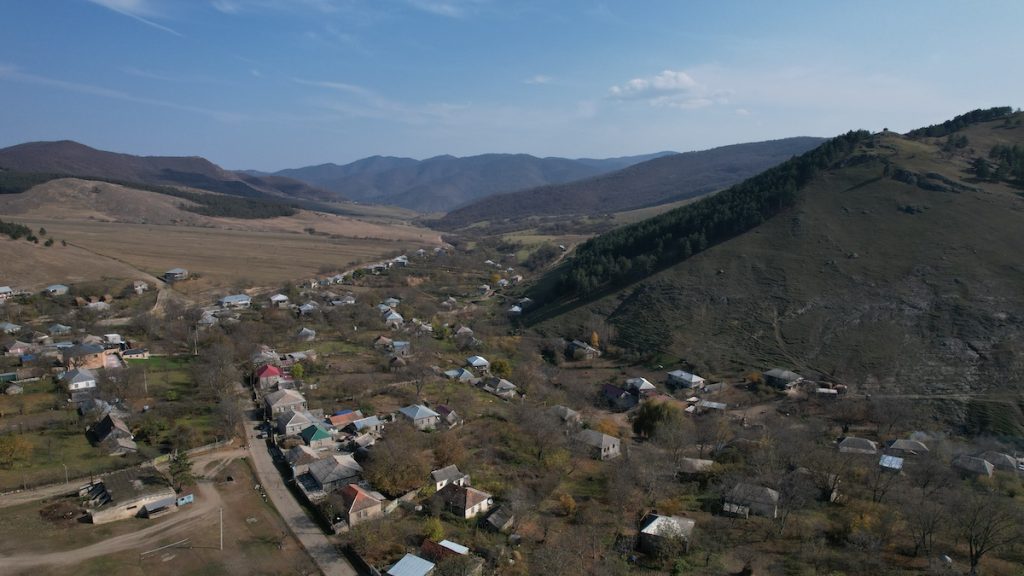
“By getting engaged, a girl is sort of ‘reserved’. Since nothing is written in the law about engagement, there is no legal leverage to prevent it. We can’t help girls who come to us. The family says that nothing illegal is going on,” says human rights activist Samira Ismayilova, chairwoman of the Civil Equality Platform, who herself is from the Azerbaijani community and knows its problems well.
Child marriage in Georgia
“A clause on engagement should be added to the law,” says social activist, also a representative of the Azerbaijani community Tozu Gulmamedli, “betrothal of children should be banned. Any agreement on child marriage should be criminalized.
In today’s realities, the state intervenes in the problem only when the result is already established – the marriage has taken place or the minor has given birth. Our goal should be to prevent child marriage, not to respond to crime.”
Asked if there is a plan to amend the legislation against the practice of engagement, Nino Tsilosani said that the authorities are consulting with the UN family organization, but she did not specify what exactly is planned.
“Both for us and in international practice, engagement is a form of coercion that objectifies girls, ignores their position. On the one hand, of course, this has to be fought in terms of legislation and its effective enforcement, but also, of course, in terms of changing social norms and stigmas.
The state will not succeed without public participation,” says the MP from the ruling party, which deals with gender issues.
Child marriage in Georgia
Zaydeh’s wedding
In November 2016, 16-year-old Zaydeh had a lavish wedding. Her school teachers were also present at the wedding table.
The girl was so stressed that she doesn’t even remember what kind of dress she was wearing.
Her husband forbade her to dance with her classmates and talk to boys.
“Before that, we had never seen each other alone. We used to meet families all the time. He was very rude at the wedding, I was scared.”
Suddenly, in the middle of the wedding, unknown women grabbed Zaydeh by both hands and took her to a room. There her husband was waiting for her.
“The women left. As soon as they closed the door, he started yelling at me, scolding me. He yelled at me, hitting the wall with his fists. Then he slammed the door and left.”
In the morning, Zaydeh’s sheet was inspected to confirm that the marriage had been consummated. However, the sheet was clean. Her mother-in-law and her husband’s sister came, and they were furious.
“They panicked, saying our name would be tarnished in the whole village. ‘Let’s kill a chicken and drip its blood,’ the mother-in-law suggested.” Then my husband’s sister removed the bandage from my cut finger and stained the sheet with blood. Before I could say anything, they took the damn sheet away.”
Child marriage in Georgia
Kvemo Kartli – law in the captivity of stereotypes
The Ministry of Internal Affairs of Georgia does not keep official statistics on child marriage, but it collects and publishes information on possible crimes committed with the motive of marriage to a minor.
According to the Public Defender’s 2022 report, the highest number of criminal prosecutions for crimes motivated by marriage was recorded in Kvemo Kartli, where more than 41 percent of the population is ethnic Azeri.
There is a stereotype that child marriage in Georgia is largely associated with the Muslim religion and is predominantly a tradition of the Azeri community.
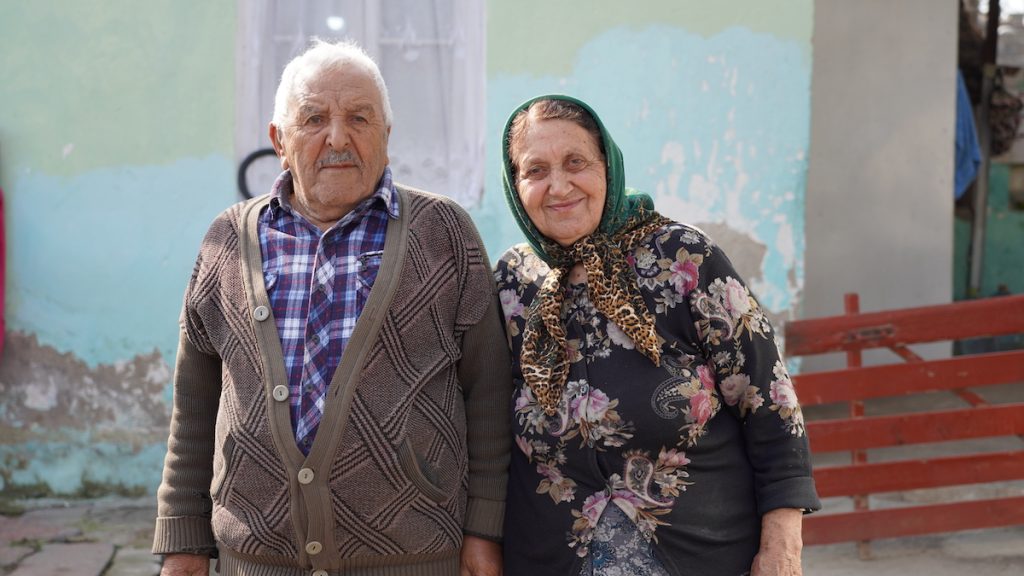
According to researchers, law enforcement officials also have similar prejudice and stereotypical attitudes toward ethnic Azerbaijanis, which hinders the enforcement of the law.
“Police often do not intervene in a case to the end or investigations are stopped on the grounds that it is a tradition, culture, religion. ‘It’s in their blood, we can’t go against their religion,’ can be heard in private conversations from representatives of local authorities,” gender researcher Elene Kaihosroshvili says.
Child marriage in Georgia
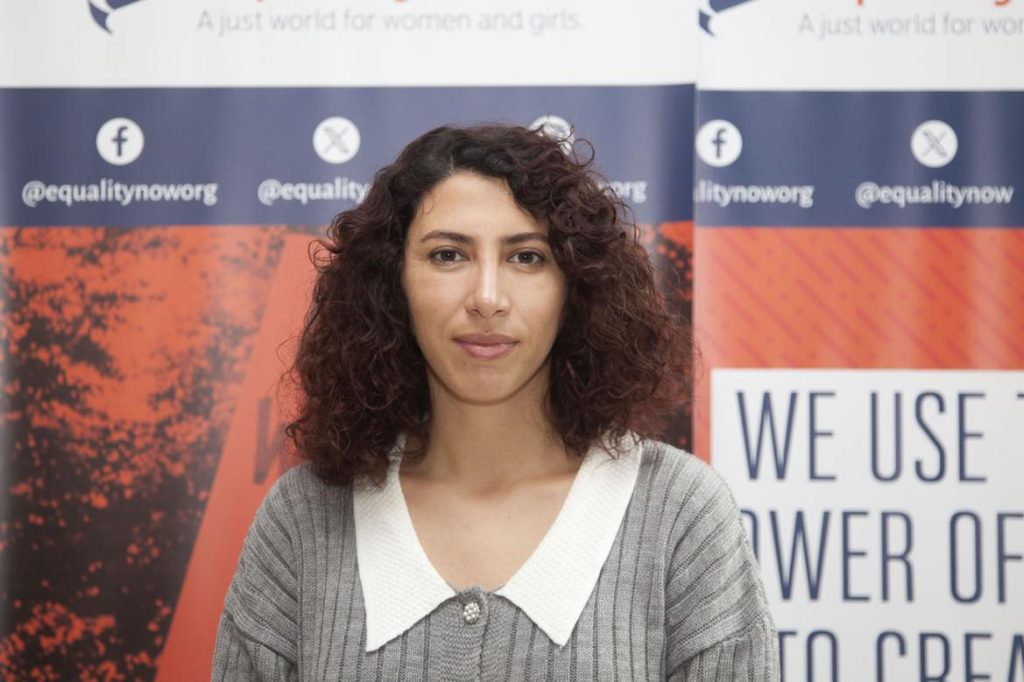
Civil activist Tozu Gulmamedli recalls an incident when she informed the police about the planned marriage of a minor, but they did not step in:
“I called 112 about the child marriage and the police replied that child marriages are accepted among Azerbaijanis and it is not worth interfering in their personal affairs. I wonder if I have a tradition of carrying weapons or killing people – will they give me the right to do so?”
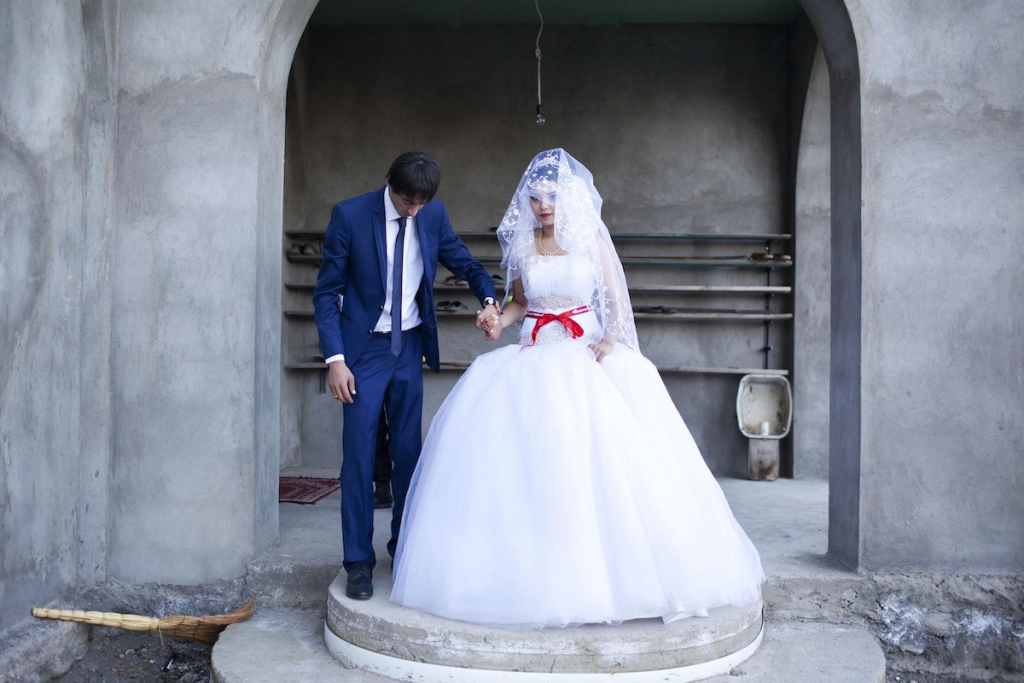
According to Samira Ismayilova, there is also a political side to this issue.
She says that traditionally the Azerbaijani community is a reliable voting base any government. This region votes for the ruling party and the pro-government candidate in all elections.
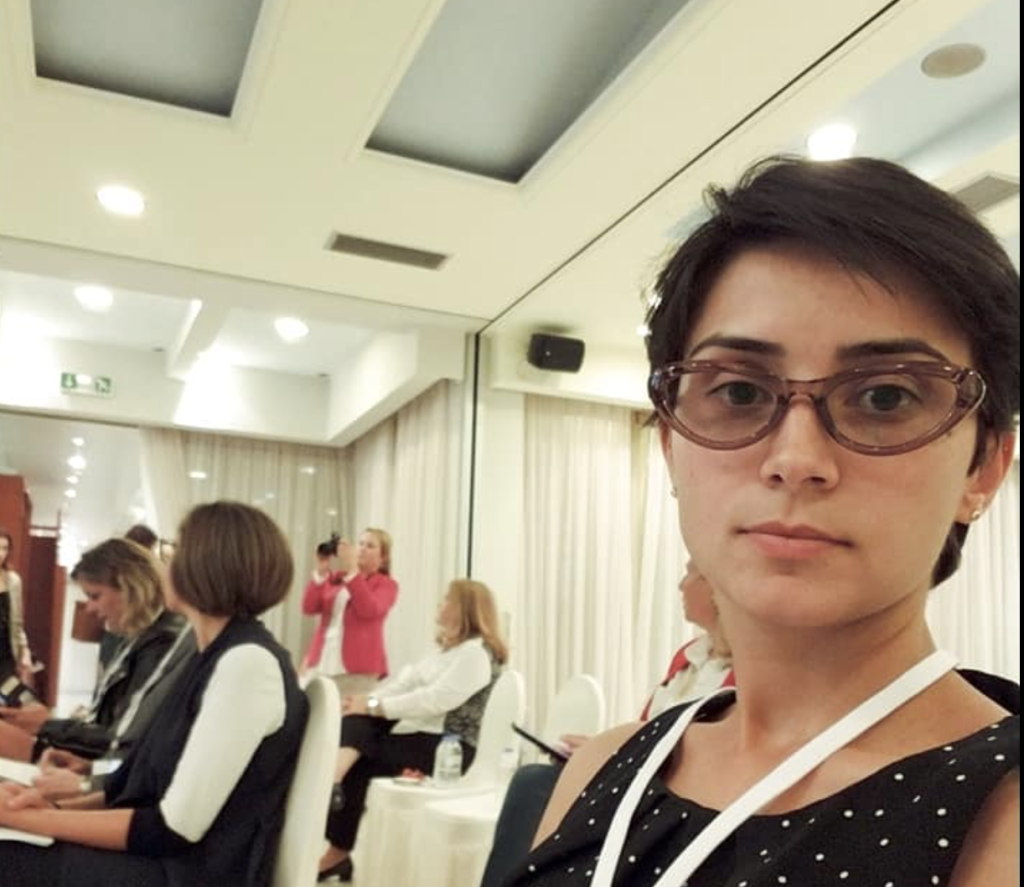
The authorities always avoid getting into a conflict with the loyal Azerbaijani community and turn a blind eye to many of the region’s problems.
“Any ruling party avoids confrontation with the Azerbaijani community. Therefore, a solution convenient for everyone was found — let’s call the crime a “tradition” and then we will not interfere so as not to irritate the community. It is easier than observing the law, working with society, fighting stereotypes and responding to crime correctly,” Ismailova says.
It’s not tradition, it’s unresolved problems
MP Nino Tsilosani says she also would not call the practice of early marriage a “tradition,” but she notes that statistics indicate that early marriages are more frequent in some regions:
“It is a harmful practice that violates fundamental human rights, cannot be called a tradition of any community or any ethnic or religious group. I don’t want to attribute this problem to ethnicity, although we do have specific geographical regions where we face this problem more often.”
Experts believe that in fact the main reason for frequent child marriages in Kvemo Kartli is not Azerbaijani traditions or cultural codes, but the lack of prospects for young people in the region and unresolved socio-economic and infrastructural problems that hinder the development and integration of local society.
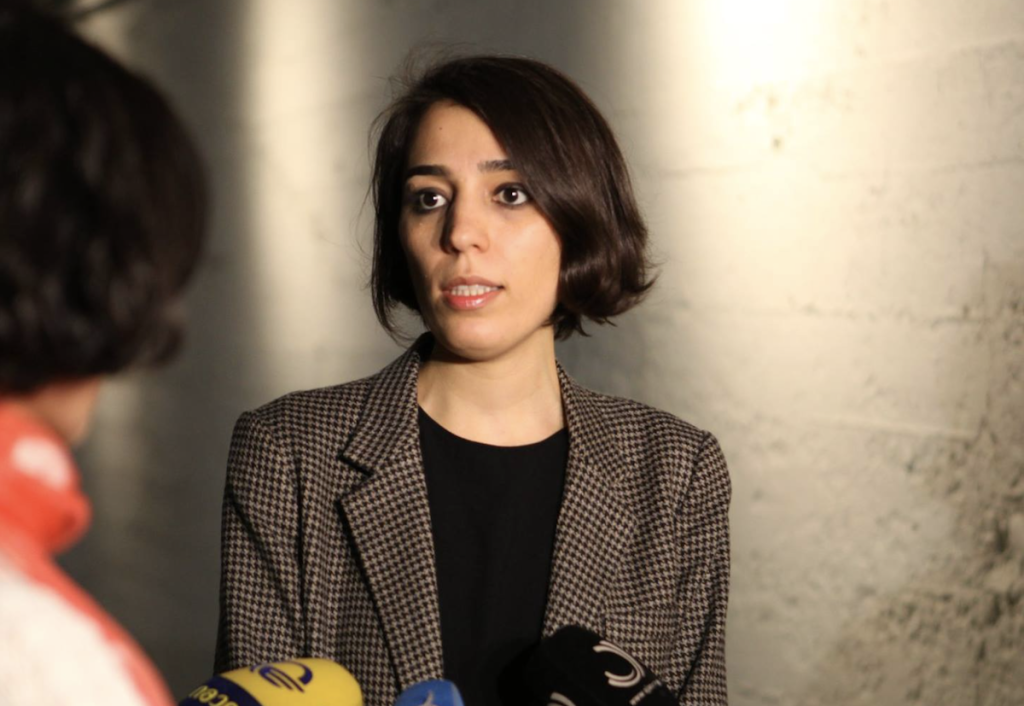
“Ethnic minorities have limited access to education, employment and social development opportunities. In terms of infrastructure, Azerbaijani villages often lag behind ethnic Georgian villages in many respects.
Azerbaijani villages have three times fewer kindergartens than other villages. Many Azerbaijani villages have no schools. The number of teachers in Azerbaijani schools is much smaller than in Georgian schools.
According to our latest research, more than 60 percent of ethnic Azerbaijani citizens of Georgia do not speak Georgian, and the state cannot provide them with a full range of public services.
All this creates a chain of social and economic injustice, one of the results of which is child marriage,” says Tamta Mikeladze, director of the Equality Policy Program at the Center for Social Justice.
Human rights activists see schools and the education system as the weakest link in this chain:
“The biggest responsibility for early marriage of girls lies with the education system. The school must fully understand its responsibility to the child and react in time if the child does not go to school,” Samira Ismailova says.
“The school cannot be unaware of child engagement. Behavior, clothes — everything changes for engaged girls. The problem is that schools do not cooperate with law enforcement agencies and hide it,” Tozu Gulmamedli says.
“Not only do schools not cooperate with law enforcement, we often see principals and teachers at children’s weddings,” Elene Kaihosroshvili says.
This is what the school in Mamishlo village looks like
In the village of Mamishlo, Dmanisi municipality, which JAMnews journalists visited, a dilapidated one-story building is called a school.
Children study here for four grades, and after the fourth grade they have to continue their studies in the neighboring village.
In this video, Salatin Ismailova, a resident of Mamishlo, tells how her daughter was left without education because she could not go to the neighboring village to study.
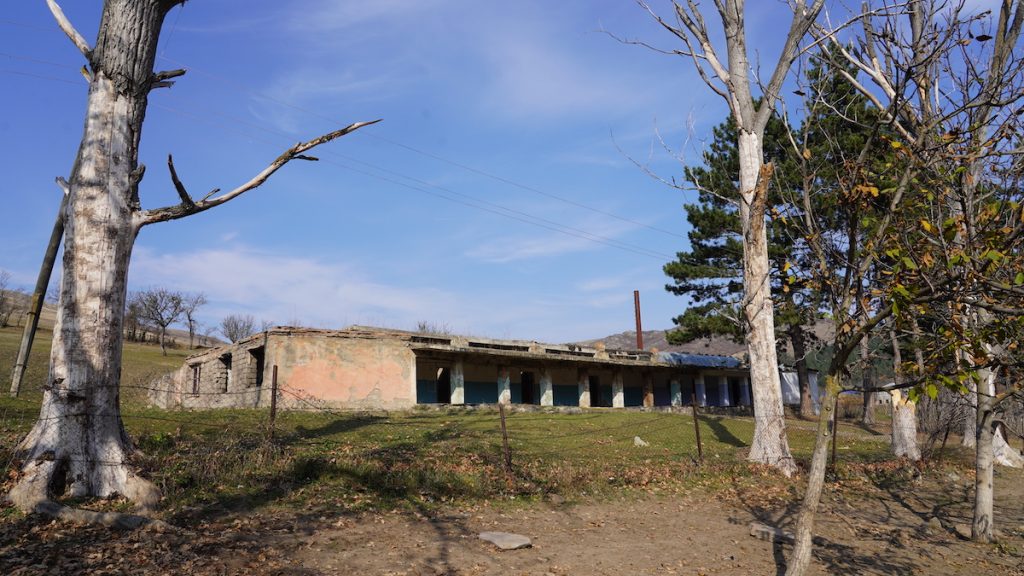
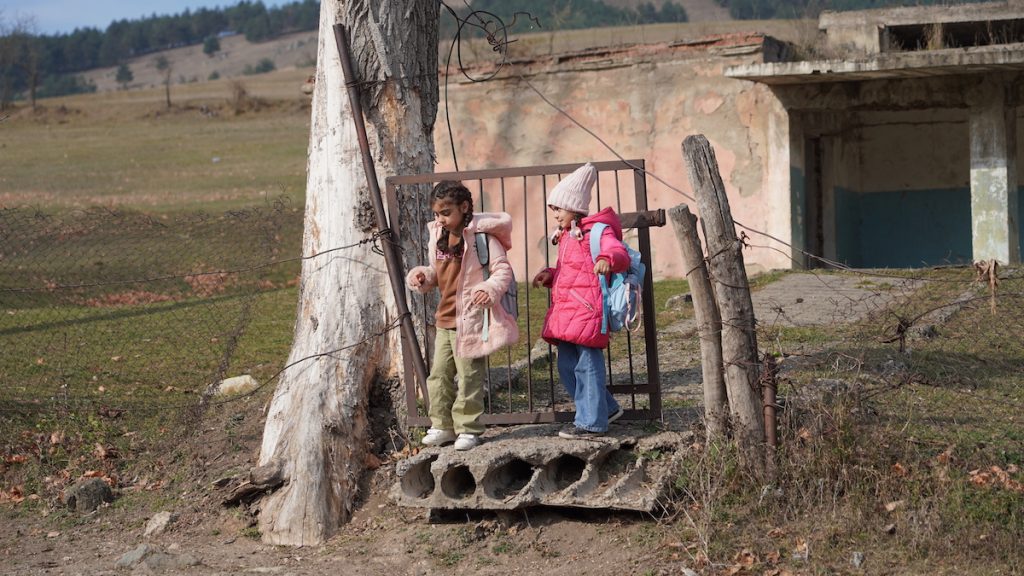
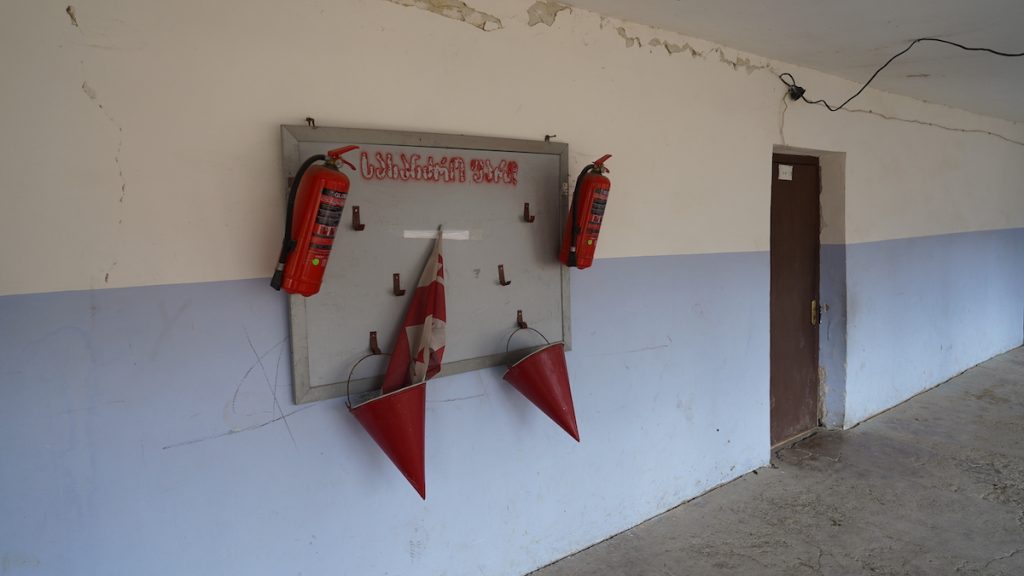
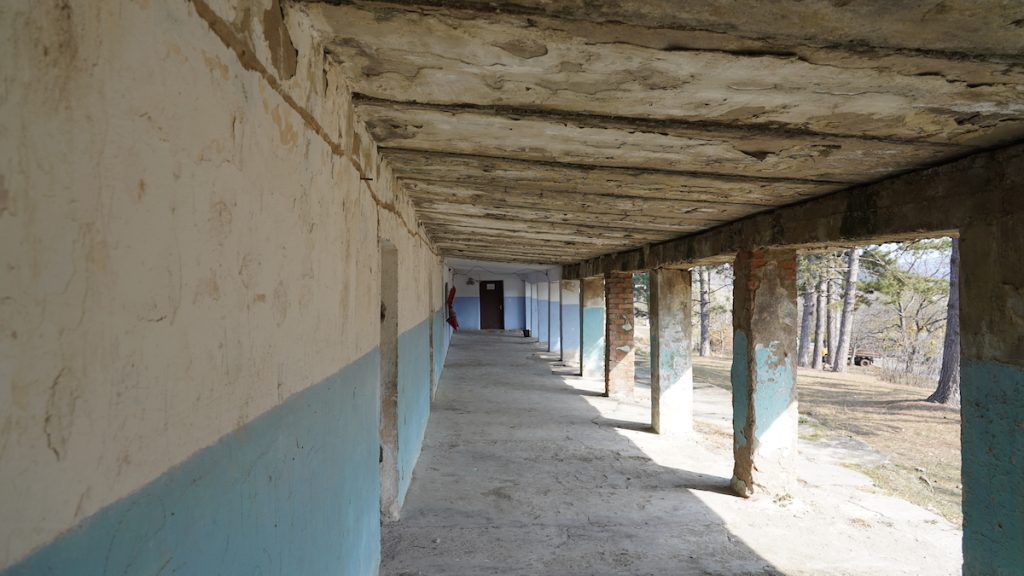
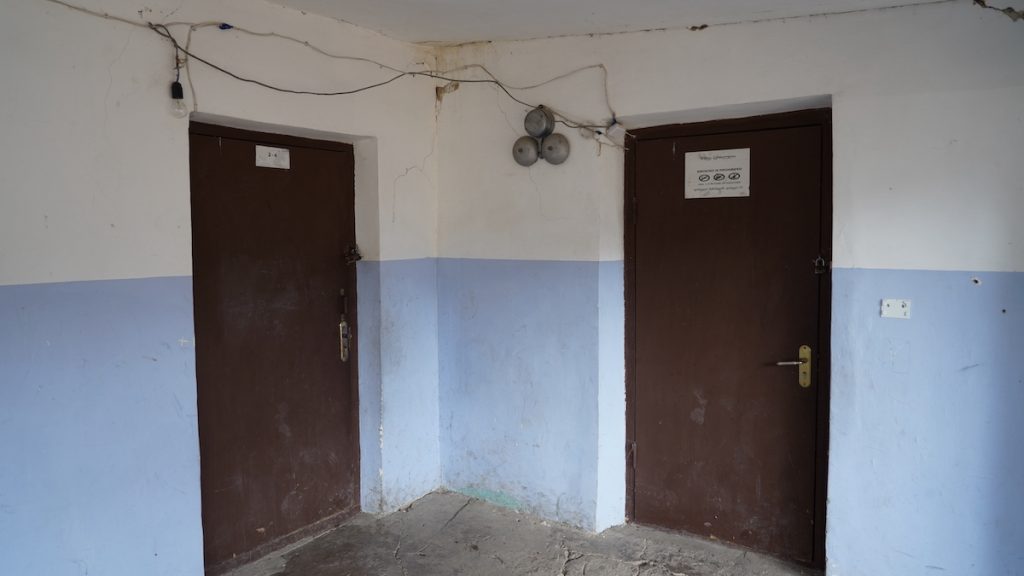
Zeide’s new life
After the wedding, Zaydeh was never at school again.
She was not allowed to dress like she used to. Her mother-in-law forbade from wearing her favorite wide-brimmed hat. “You are not a child anymore, take that hat off, you are our daughter-in-law now and you need to dress differently,” she said.
Zaydeh says she has that hat to this day.
Her family life was only outward. She had no physical relationship with her “husband.” This detail she had to keep secret so that no one outside the family would find out.
Zaydeh was blamed for the couple’s failed sex life.
The “husband’s” family started taking her to doctors – a gynecologist and a sexologist.
“I was also brought to Samkharauli for examination [Levan Samkharauli National Forensic Medical Examination Bureau – JAMnews], to find out what was wrong with me. My mother cried, my father was angry, my mother-in-law constantly scolded me. They told me I was sick.”
After two months, the situation became so serious that there was a conflict between the two families. Zaydeh wanted to return home, but her parents tried their best to keep the marriage intact. It is believed that a divorced woman is no longer innocent and no one will marry her.
Finally Zaydeh made a firm decision to leave and returned to her parents’ house. Her “husband’s” family did not hold her back by force.
“My father was furious, saying he would not give me a penny. And I really wanted to continue studying. It was very difficult for me to go back to school, I did not remember even the multiplication table. My mother supported me. She secretly pawned her gold ring to hire teachers.”
After she left her husband’s family, the girl devoted herself to her studies and passed her entrance exams. Today, Zaydeh herself cannot believe that she is a medical student at Tbilisi State University.
Now she lives in Tbilisi, rents a small apartment with her friend, studies, works part-time, has many friends and a completely different life.
Zaydeh’s relations with her parents have improved, they help her financially. Her father even wants her to go abroad to study. Her grandmother, who was once the initiator of her marriage, is also happy about her success.
Zaydeh does not like to tell her story even to her closest friends and tries to forget those two months of child marriage.
“Today I know that I am not sick and there is nothing wrong with me. But back then, I blamed myself. Everything that happened to me happened out of ignorance. The only way to confront all this was to get an education. I will become a gynecologist and help other girls.”
A lot depends on the parents
There are cases when underage girls are forcibly “stolen” in order to marry them, but often parents and guardians themselves facilitate the marriage of their underage children.
According to experts, the reasons for this are often a better financial prospect and an attempt to get out of poverty. The parents want to marry off their daughter to a wealthier person.
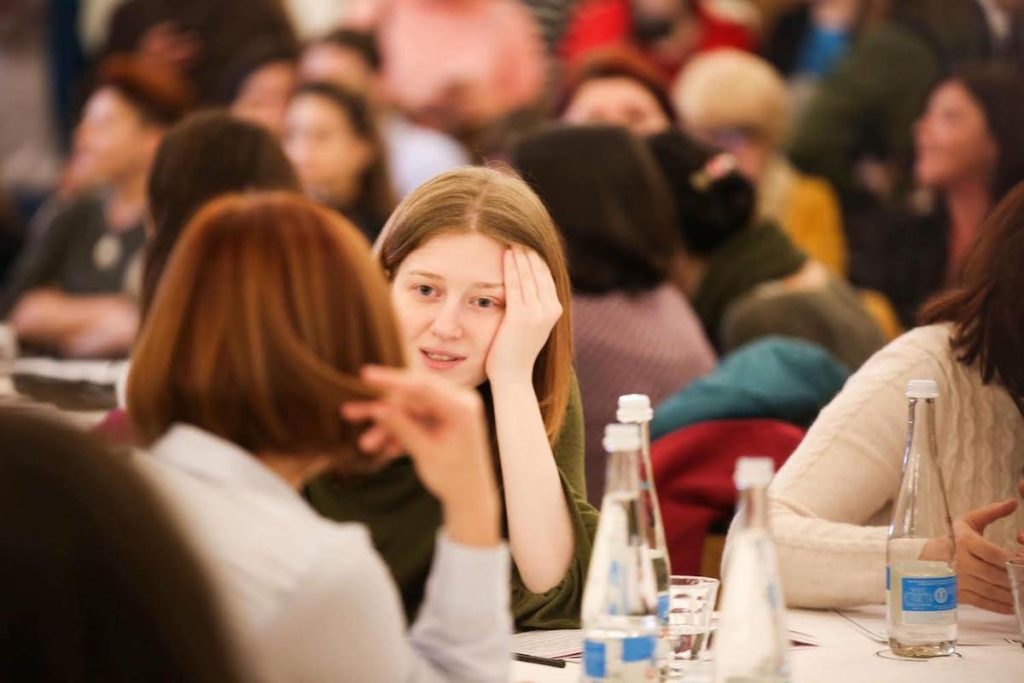
According to the investigation, Aitaj’s mother wanted to marry her daughter off to Asim Aslanov because his family was considered wealthy.
“In many cases, children themselves agree to marriage,” Elene Kaihosroshvili says, “because they have no space for entertainment and socializing, and so they themselves, like their parents, see marriage as the only prospect, as the only scenario for their lives.
That is why it is important to look at the problem more deeply. We need to tackle its causes, its origins, rather than assuming that parents in ethnic minority communities love their children less.”
“Many parents think marriage is the best prospect for their child. These mothers were also raised that way,” Samira Ismailova.
Still, she says this needs to change and to do so, it’s important that both parents and everyone involved are held accountable if they facilitate the marriage of their underage daughters.
“We need to seriously and deeply work on this problem, from parental awareness to school involvement to law enforcement response. This is a complex issue that cannot be solved overnight, it requires the activity of the state and its institutions.”
* The material was prepared with the support of Mediaset










